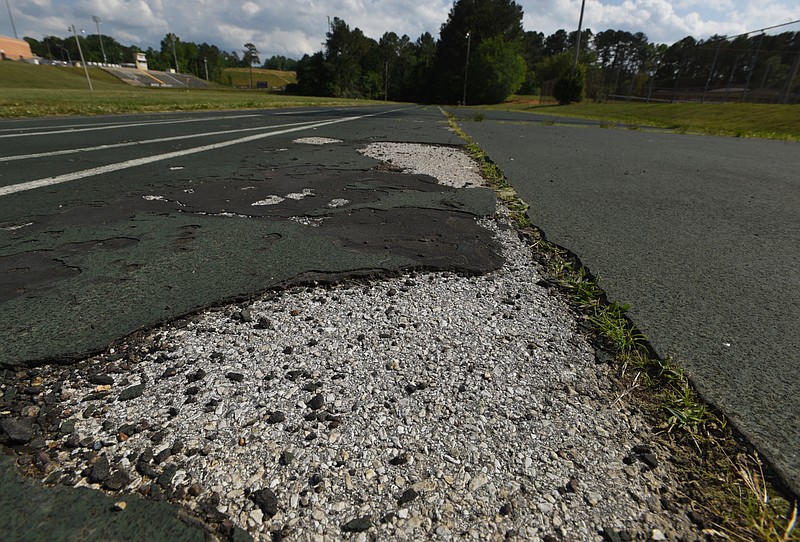Have you ever caught yourself thinking: The more things change, the more they stay the same?
That seemed the case last week as state school officials announced plans to grade schools with A, B, C, D or F.
Novel idea, huh?
It also seemed like deja vu all over again at the county Courthouse when our Hamilton County Commission members danced once more around how to spend taxpayer funds - allocated equally - to get votes rather than on the nitty-gritty educational needs of our county.
The commissioners - who must approve and fund all major school facility construction and maintenance - voted 5-4 Wednesday to table a motion that would have authorized $500,000 in bond funds to replace the track at Central High School. The existing track is pot-holed and dangerous, but fixing it requires a level of compromise and prioritizing that this commission can't yet seem to grasp.
In years past, each of the nine commissioners was allotted $100,000 in discretionary funds to spend on projects within their individual districts - often on schools. But last year, County Mayor Jim Coppinger said there was no room in the general fund budget for the discretionary funds unless commissioners wanted to raise taxes. They didn't. Nor did they want to increase funding to schools - either with a tax increase or by borrowing from the county's rainy-day savings. But a majority of the commissioners didn't mind going into the county's savings and moving $900,000 into the county budget for their discretionary funds.
The county mayor vetoed the commissioner-amended budget, but a second commission vote overruled his veto.
This past year, Coppinger again submitted a budget without the discretionary funds, but this time offered the commissioners a bridge to help wean them from their discretionary funds addiction: He would allow them the one-time use of up to $900,000 of the county's line of credit for large school and community projects in fiscal 2017 - but they have to debate and agree on those projects and expenditures.
The $500,000 track apparently is a bridge too far for five commissioners who don't see a way to get much in their own districts with the $220,000 that would be left of the original allotment.
So much for compromise. And as for prioritizing, the commissioners threw that act of governing back on the school board, quibbling with each other and school board chairman Steve Highlander over how many times they've asked for a school board priority list of facility and maintenance needs - district by district.
Looking at it by district, some surmise, would be like the $900,000 in discretionary funds that were split evenly among the nine commissioners. At Wednesday's meeting, Commissioner Greg Beck, who represents District 5, noted that in recent years his district had only about $4 million spent on it, while other districts had as much as $100 million in spending.
But folks, neither the districts nor student needs are created equal.
The issue isn't just equality; it's also equity. Even priorities aren't equal.
Which is more important: students dodging potholes on a track field at Central High School or Harrison Elementary School students having to walk through sewage to use the one-third of bathrooms that still work at their 77-year-old school? According to the school system's February 2016 Deferred Maintenance list, restroom renovations are just $45,000 of the $3.4 million in needs at Harrison.
And just in case you're wondering what the bottom line is on all schools' deferred maintenance, take a deep breath: $206.4 million.
It's way past time for our Hamilton County commissioners to grow up and get over their lost discretionary funds - and even their tit-for-tat balance sheets. The commissioners must understand that their priorities have to change. Both the county and the school system are bigger than their individual districts. And priorities are more than just bottom lines and balance sheets.
If it's easier to understand this by looking just at Central's track, then consider it this way:
Equality levels the playing field. Equity gets students to the playing field.
Our job as commissioners and taxpayers is to do both.
